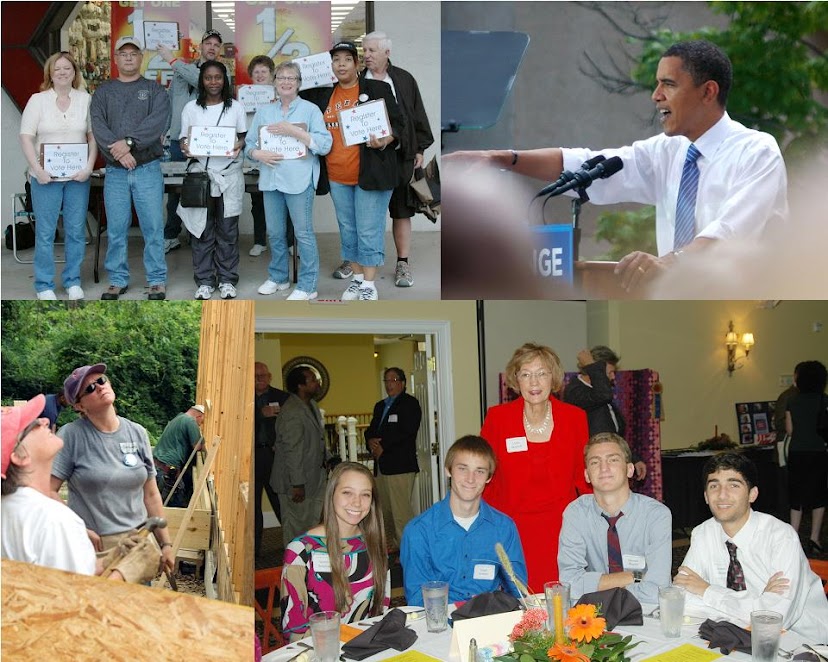From The Pilot: October 21, 2009
"What is Barack Obama trying to accomplish as president?" several pundits have recently asked. "Why isn't more being done to lower the unemployment rate? Why is he hesitating to follow the recommendation of Gen. McChrystal and send more troops into Afghanistan?"
These questions reflect the typical impatience of our populace and media, and a superficial understanding of the fact situation that confronts the U.S. This situation is defined by structural causes, developed over a long period of time, that do not lend themselves to short-term solutions.
I believe that President Obama understands these causes and has two overriding missions -- one domestic and one international -- to respond to this situation. Today, I want to address the domestic mission.
The domestic mission is to restore the middle class and the advancement opportunities that have historically been provided by a strong middle class and middle-income jobs. For the past 25 years, an ever-increasing percentage of the U.S .wealth and income has accrued to a very small segment of the population.
Between 1979 and 2005, the average after-tax income for the top 1 percent of earners increased by 176 percent, for the top 20 percent of earners by 69 percent, and for the middle 20 percent of earners by 21 percent. This trend -- which represents the greatest increase in income inequality among the developed, rich nations -- has given the U.S. the highest income inequality among those nations, and the highest in this country since the pre-Depression year of 1928. This result cannot be adequately explained by education, skill and productivity differentials.
It can be explained by tax and deregulation policies that allowed a limited number of individuals to accumulate massive wealth, not by growing companies and creating quality job opportunities for workers, but rather by financial manipulations, including mergers and acquisitions, that result in companies "too big to fail" and generally produce workforce reductions.
We are experiencing a national economic version of "Barbarians at the Gate," the story of how leveraged buy-out artists acquired profitable but undervalued companies and then systematically withdrew funds through cost reductions and the sale of assets.
In many cases, these actions diminished the capacity of the business to survive, much less continue to grow. Of course, the funds were used to make big payouts to stockholders. The other results? Laid-off workers, bankrupt pension plans which became the responsibility of the federal government, and a loss of production capacity in the economy.
What do we see in the U.S. economy?
-- A steady shift away from goods production, which tends to increase wealth in the economy, to services and entertainment, which simply consume existing wealth.
-- Investing in construction of retail shopping malls, office buildings and sports arenas rather than modernizing plants, equipment, transportation and education systems, and utility grids.
--Deferring the downstream costs of environmental pollution and inadequate health care to future generations.
--Making major payouts to high-income earners through lower tax rates.
We have allowed our capacity to produce goods that will generate future income for the U.S. economy to diminish while providing significant short-term income gains to a limited number of Americans. Our economy has been supported, until recently, by the borrowing power of the country and individual consumers, but we have reached the limit of that power.
Until we can redirect this trend, establish a stronger focus on goods production as a significant component of the economy, and strengthen the earnings of the large number of workers (and, thus, their buying power), we will not be able to experience a significant drop in unemployment.
President Obama understands that this redirection will not be achieved by short-term quick fixes, but will require significant new investments in the infrastructure needed to support business growth, particularly for small and medium-size businesses.
This explains his policy focus on using stimulus funds to improve transportation and education, modernize utility systems, develop environmental technologies, and reduce one of the most significant costs to businesses, workers and the US government -- health care.
Yes, these investments are expensive, and they should not be simply passed on to future generations. Those who have disproportionately benefited from the current situation should be expected to disproportionately pay the costs of getting us out of it.
Brian Deaton, who lives in Pinehurst, is a former chairman of the Moore County Democratic Party.

No comments:
Post a Comment